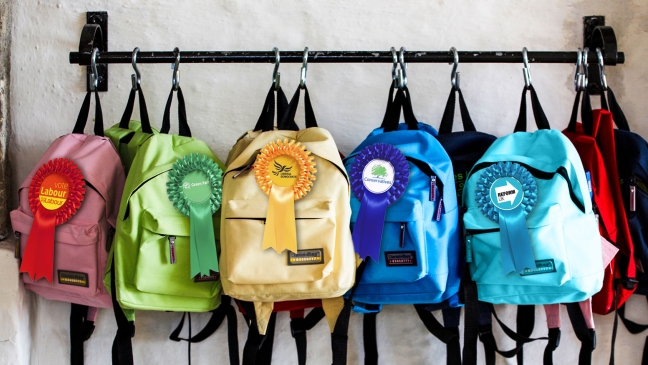As we pick over the aftermath of the general election, much commentary has focused on the surge in support for Reform - particularly so given that the party came second in 98 seats.
Mainstream media talk of a “youthquake”, with Nigel Farage’s party enjoying particularly strong support amongst Gen Z - and not just among those who were old enough to vote.
As the country headed to the polls to choose a new government, nearly 16,000 students across AET voted in our mock election - AET Elects - across the 41 constituencies that are home to our schools.
Education and politics
For many pupils, this will be the last general election they experience during their time at school. As schools, we must take every opportunity to engage them directly in our democratic processes. Young people need to understand our constitution and the political, social and economic discourse of the day.
Over the past decade, schools have found themselves at the forefront of rapid social and political change. The big universal challenges of our times - climate change and sustainability, the rise of toxic masculinity, the influence of social media, unpredictable geopolitics and conflict, or indeed the aftermath of Brexit - all generate divisions and discourse across the country, which play out in our schools just as much as they play out in our communities.
These hot and complex issues can often feel challenging for teachers to manage in schools, but we need to have the confidence to maintain political objectivity without ducking the issues of the day. It has never been more important for us to model how to engage with robust debate and respect different perspectives, as well as take time to really listen to what our young people are saying to us about the issues that matter most to them.
How did young people vote?
AET Elects is the first step in a programme of work to do just this. We want every one of our students to feel agency, to know how important and powerful their voice and vote are. To believe that they have the power to influence and shape not just their own lives but the priorities we pursue as a country over the next generation.
With Labour’s plans to extend the vote to 16-year-olds, this work has never been more important or urgent.
Going into the election, our 41 MPs comprised 21 Conservative, 18 Labour and one Liberal Democrat. This week, more than half of our schools have new MPs, with nine Conservative, 26 Labour, five Liberal Democrat and one Reform.
Interestingly, if our students’ votes had counted at the ballot box, they would have elected a different MP in 27 of our 41 constituencies. A sharp reminder to all parties of the need to speak directly to young people - and listen to them.
The rise of Reform
With 57 schools spanning the length and breadth of the country, from Torquay to Middlesbrough, AET mirrors the diversity of English communities. We have schools in inner-city Birmingham and London with high levels of disadvantaged and minority ethnic pupils. In contrast, we also have large coastal secondaries with predominantly white British cohorts, alongside very small rural schools with fewer than 100 pupils.
So, what did our students say?
Overall, the results were striking: it was clear that our students cast a vote for change, no matter which political or ideological perspective they voted for: 29 per cent voted for Labour; 23 per cent for Reform and 17 per cent for the Green Party. Just 9 per cent voted Conservative. And in more than a third of our schools, Reform either topped the poll or came second.
With Reform recognised as having played a strong game on TikTok, this is a salutary reminder that MPs of all parties need to find new ways to connect with young people.
Pupil leadership
We believe fundamentally in the importance of pupil leadership. Across the next two years, we are taking this further by establishing a national student leadership programme to amplify the students’ collective voice and capacity to advocate for change.
Now, more than ever, it is essential that young people believe in their individual and collective power. They need to believe that the future can be brighter and that they can make it happen.
Our young people are the critical change-makers and, as educators, we have a role to play in helping them to discover, harness and direct that power.
Becks Boomer-Clark is CEO of Academies Enterprise Trust
For the latest education news and analysis delivered directly to your inbox every weekday morning, sign up to the Tes Daily newsletter





